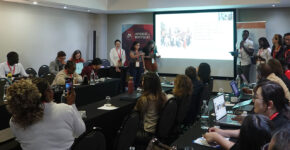International partnerships
The University of Montpellier has a long tradition of international openness, which has been demonstrated through the implementation of numerous academic partnerships, mobility programs, and scientific collaborations. At the European level, our institution pursues an active exchange policy within the framework of the Erasmus+ program.
We welcome students from most European countries and internationally, with the number of incoming and outgoing exchanges steadily increasing in recent years. UM is also developing dual degrees that allow our students and international students to broaden their professional opportunities. Thanks to its numerous cooperation agreements, UM also welcomes faculty and administrative staff from around the world.
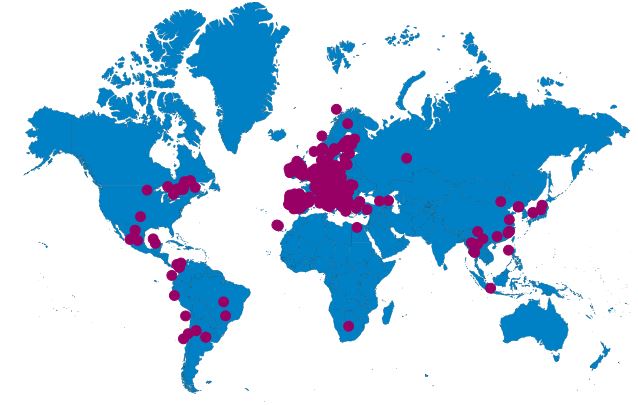
UM's strategic partnerships
The creation of a strategic partnership enables close collaboration with a limited number of institutions, thereby creating strong synergy between these partners and the University of Montpellier. Strategic partnerships are unique in that they involve every faculty at our university. The projects developed within these partnerships cover all aspects of academic collaboration, such as: student exchanges, scientific exchanges for students and professors, joint supervision of theses, scientific collaborations, intern exchanges, the creation of joint programs, participation by students and professors in summer schools, the creation of chairs of study and research, the organization of scientific conferences, and organizational management. Our strategic partners are:the University of Barcelona,the University of Heidelberg, andthe University of Sherbrooke.
In March 2017, the French government confirmed the choices made by the international jury responsible for selecting the winners of the IDEX-ISITE call for projects. The MUSE project, "Montpellier University of Excellence," is one of the winners and is led by the University of Montpellier.
This project brings together 19 institutions with a shared ambition: to make Montpellier one of Europe's capitals of health, agro-environment and ecology-environment (themes: feeding, caring for and protecting) and a true European hub for scientific cooperation with countries in the Global South. The preferred international strategic partners are therefore naturally those with whom the members have strong scientific ties:the University of Heidelberg (Germany),the University of Barcelona (Spain),Wageningen University (Netherlands), andUC Davis(United States).
The UM also strives to support, in cooperation with research organizations, the efforts of its staff to build international networks of research excellence, particularly in Europe, North America, and Japan.
The existing collaboration between consortium members is therefore strengthened by a dynamic that combines the project's development and implementation policy with UM's international relations policy.
Erasmus+ partnerships
International agreements may be established within the framework of the ERASMUS+ program, the European Erasmus Mundus programs, the Office of International Cooperation (BCI Québec), or may arise from inter-university collaborations led by our university.
All of these agreements and programs support UM's international strategy by promoting student and staff mobility and providing a favorable framework for academic and scientific cooperation.
procedure for establishing a dual degree
Contact your department or the cooperation service at the University of Montpellier for more information.
Procedure for establishing an international partnership
These may be training partnerships (exchanges, dual degrees, off-site degrees, etc.) or research partnerships. Regardless of the type of partnership you wish to establish, it is necessary to draw up and sign an agreement. This agreement sets out the specific terms and conditions for each project. This document is an administrative and legal act that is binding on each party. At UM, only the President is authorized to sign it.
Contacts for submitting your partnership request: the Cooperation Department of the International Relations Division at the University of Montpellier will provide you with information and support in setting up your international partnerships.
International networks
The University of Montpellier is part of numerous international networks that enhance its influence:
AUF (all continents)
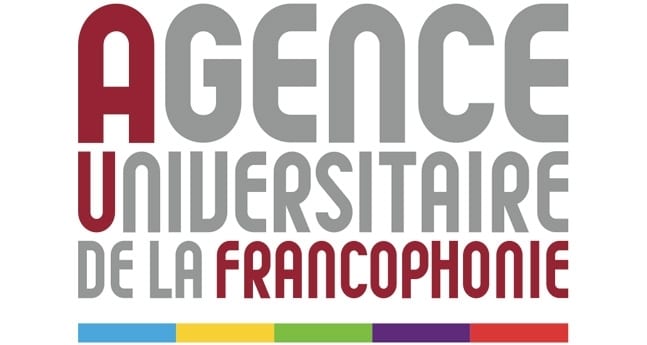
The Agence Universitaire de la Francophonie (AUF) is an international association that offers its member institutions a powerful tool for sharing and capitalizing on experiences, facilitating the structuring of educational and scientific offerings, exchanges, the implementation of inter-university projects, and support for scientific projects.
USA
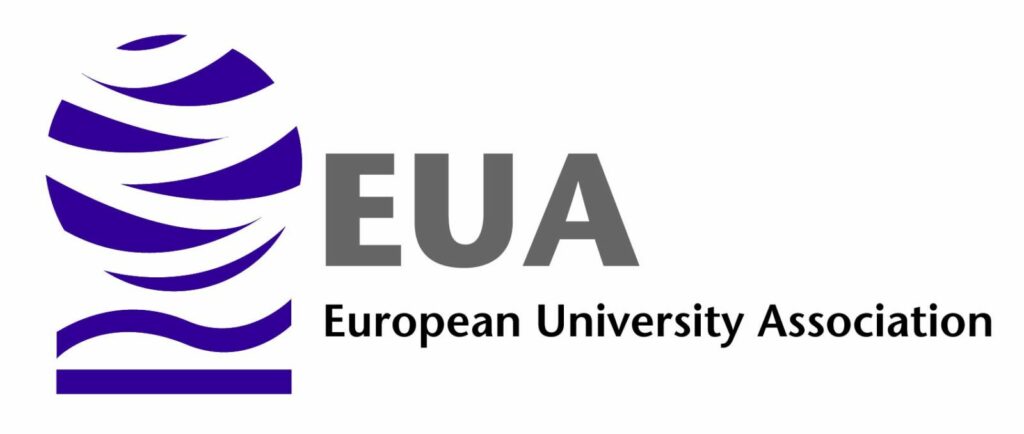
The European University Association (EUA) represents universities and national conferences of university presidents in 47 European countries.
The EUA has more than 850 members and plays a major role in shaping European Union policy on higher education, research, and innovation.
Coimbra Group

It is a university network founded in 1985 with the aim of bringing together long-established, multidisciplinary universities that meet high international standards.
e-OMED (Mediterranean Region)

The "Open Digital Space for the Mediterranean" project aims to gradually build a digital space that is widely open to all stakeholders (countries, institutions, and individuals) of the Union for the Mediterranean (UPM).
Its goal is to preserve and promote the legacy of Mediterranean civilization, inherited from the Egyptians, Assyrians, Hebrews, Phoenicians, Greeks, Romans, and Arabs, by making the most of powerful tools such as the Internet, digital technology, information and communication technologies, and virtual communities for exchange and sharing.
UNIMED
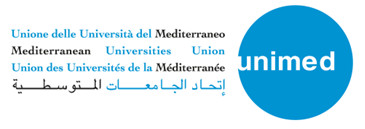
UNIMED, the Union of Mediterranean Universities, founded in October 1991, is an association of universities in the Mediterranean basin. UNIMED aims to promote university research and education in the Euro-Mediterranean region in order to contribute to scientific, cultural, social, and economic cooperation. UNIMED now has more than 100 members from across the Mediterranean region and beyond. UM has been a member of the UNIMED network since 2019.
CAMPUS France
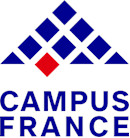
Campus France is a public institution responsible for promoting French higher education abroad and welcoming foreign students and researchers to France. It encourages international mobility, manages scholarship programs, and runs the alumni network.




